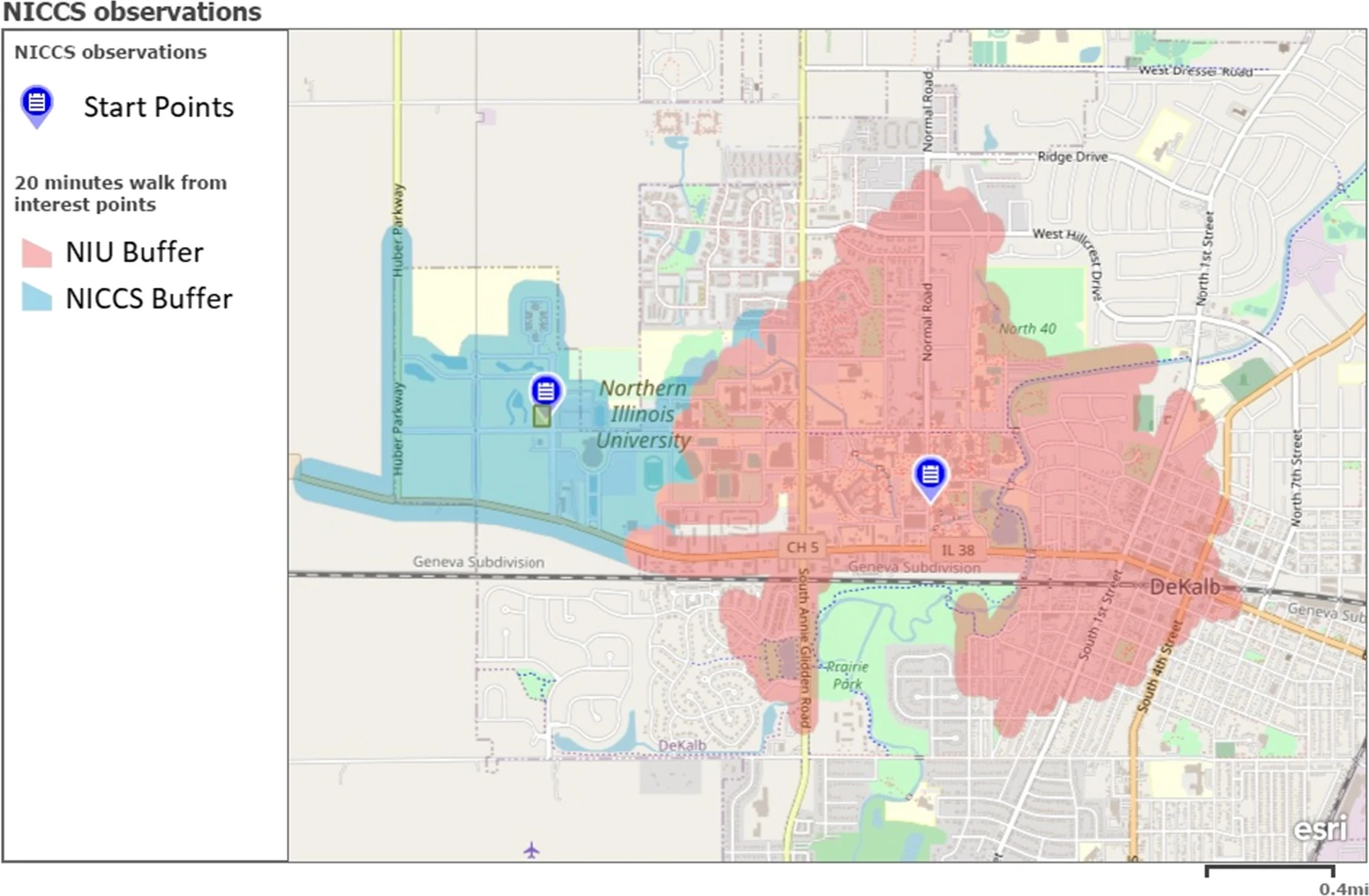
Ampliando la participación, creando comunidad y aprendiendo que nunca sale según lo planeado
Este artículo presenta la experiencia de un curso de aprendizaje-servicio que utilizó geografía comunitaria para estudiar un centro de investigación y comunitario propuesto en DeKalb, IL. El centro fue propuesto como un proyecto desarrollado conjuntamente por la Universidad de Northern Illinois y entidades gubernamentales locales. El objetivo original del curso era explorar la viabilidad del proyecto propuesto y solicitar retroalimentación de la comunidad a través de planificación participativa tradicional y participación pública. A medida que los estudiantes comenzaron a interactuar con las comunidades universitarias y residenciales, quedó claro que ambas comunidades tenían aportes para el centro, y encontraron similitudes en sus experiencias y percepciones. Aunque se conocen divisiones notables en grupos de interés en DeKalb, ambas comunidades se encontraron sorprendentemente interesadas en discusiones significativas para entenderse mejor a través de sus experiencias compartidas. En respuesta, nuestro enfoque teórico cambió a la geografía comunitaria. Estudiantes, empleados universitarios y residentes locales introdujeron y analizaron preguntas juntos como investigadores y participantes, y desarrollaron recomendaciones para abordar preocupaciones compartidas. Los estudiantes luego prepararon un informe abogando por esas preocupaciones para presentar a líderes universitarios y comunitarios. Siguiendo la evolución de este proyecto, este artículo presenta lecciones aprendidas y áreas de aplicación de la geografía comunitaria como técnica pedagógica, como componente importante del plan de estudios de geografía, y como marco de investigación para la indagación de relaciones entre la ciudad y la universidad.